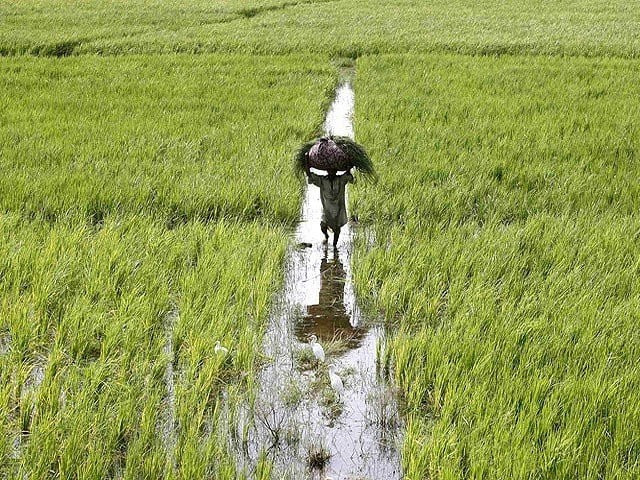Scrapped projects leave livestock farmers in turmoil
Farmers struggle to pay off loans after govt withdraws support from ostrich, camel farming

The local ostrich farming industry appears to have taken a devastating hit in recent years, bringing the sector to the verge of extinction. In Punjab alone, over 98 per cent of farms have been pushed to closure in the last three years, causing ostrich meat prices to sky-rocket to a whooping Rs2,000 per kilogramme.
Per Raja Tahir Latif, who founded ostrich farming in Pakistan, the sector’s downfall is owed to the present government’s wavering interest in the industry. “There were some 450 ostrich farms in Punjab a few years ago, now there are barely eight or ten. The situation is such that we’re all just trying to save the few birds that remain,” said Latif, with a heavy sigh.
According to the veteran farmer, business was booming and traders from abroad, especially from Uzbekistan, would come to Pakistan to buy ostriches until some years ago. But the removal of subsidies by the present government and the absence of any aiding policy is what brought the industry to its knees.
“We also started a plan to sell ostrich meat and eggs,” told Raja Tahir Latif. Ostrich meat used to be sold at Rs1200-1400 per kilogramme but now there are barely any birds left to slaughter. “Those who have birds have grown up and are now able to lay eggs, so farmers are not selling them and the ones who agree to sell have exorbitant prices,” he added.
Read ‘Farmer-friendly initiatives yielding results’
Much like the ostrich farming sector, the camel milk supply scheme, which was started by Punjab Livestock in 2017 on a giant budget, has also been left paralysed. Millions of rupees were spent on the promotion of the project while millions more were dedicated to registration of camel breeders in Thar and Cholistan, from where camel milk was brought to Lahore and sold. Back then, some three years ago, the milk would retail for Rs120 per litre. The same scheme had also empowered vagrant communities to come into city centres and sell camel milk along the roadsides, while there were plans to sell packaged, pasteurised camel milk.
However, the projects now appears to have come to a standstill, following the transfer of Punjab Livestock Secretary Naseem Sadiq, who was responsible for the initiative. In this regard, Punjab Livestock Director Communications Dr Asif Rafique said that both the projects were started for a specific period after which they were closed, as intended. “Both the projects were giving good results but were not included in the policy and priorities of the present government so they eventually had to be closed,” the director added.
In regard to this, Amir Hayat Bhandara, a progressive farmer and founder of the Agriculture Republic, believes that when governments change and policies related to various projects are suddenly shifted, it has an impact on both the farmer and the consumer. “Like in the case of ostrich farming, hundreds of farmers not only made personal investments but also took loans from various banks for ostrich farming, when the project was being promoted. The same was done for camel’s milk. Then when the government scrapped these projects, not only did the farmers lose their personal investment, but were also left indebted to the banks,” explained Bhandara.
Speaking further, the Agriculture Republic founder associated the government’s ad hoc policies to also be one of the primary reasons for foreign investment challenges in the country. “They [foreign investors] fear losing their capital owing to an abrupt policy change. Therefore, it is important to bring consistency in policies so that a plan is completed and its real fruits are brought to the notice of the people,” he told The Express Tribune.
Published in The Express Tribune, October 12th, 2021.



















COMMENTS
Comments are moderated and generally will be posted if they are on-topic and not abusive.
For more information, please see our Comments FAQ